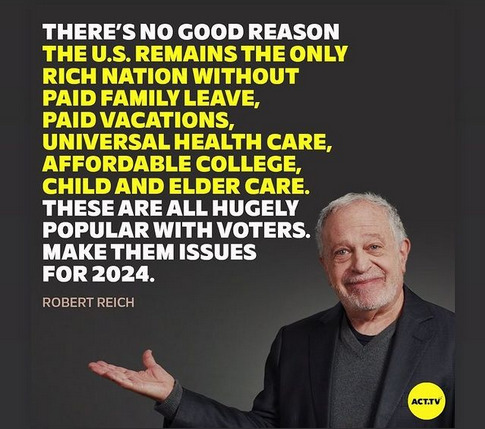#affordable health care
Text
The Healthcare Debate Of 1956 - Past Daily After Hours Reference Room
A few good subscribers: Become a Patron!
https://pastdaily.com/wp-content/uploads/2012/08/healthcare-debate-1956.mp3
At the risk of sounding like a broken record and belaboring a point over and over, the argument over Universal Healthcare, Affordable Healthcare, proposed legislation for some subsidized Healthcare are all old issues. Issues that have been at forefront of the American…

View On WordPress
#1950&039;s#1956#Affordable Health Care#Affordable Healthcare#AMA#American Medical Association#Big Pharma#Blue Cross#Britain#Broadcast Journalism#Broadcasts#Conflicts#Congress#Corporate America#Corruption#Democracy#Disconnect#Discussion#Doctors#Health Care#Healthcare#Hospital#hosptialization#medical care#medical treatment#Medicare#Medicine#mid-century america#Middle Class#Radio
0 notes
Text
Less than three months after U.S. Senator Tammy Baldwin and her colleagues launched an investigation into the four major American manufacturers of inhalers, three of the companies have relented, making commitments to cap costs for their inhalers at $35 for patients who now pay much more.
25 million Americans have asthma and 16 million Americans have chronic obstructive pulmonary disease (COPD), meaning over 40 million Americans rely on inhalers to breathe.
Inhalers have been available since the 1950s, and most of the drugs they use have been on the market for more than 25 years.
According to a statement from the Wisconsin Senator’s office, inhaler manufacturers sell the exact same products at a much lower costs in other countries. One of AstraZeneca’s inhalers, Breztri Aerosphere, costs $645 in the U.S.—but just $49 in the UK. Inhalers made by Boehringer Ingelheim, GlaxoSmithKline, and Teva have similar disparities.
Baldwin and her Democratic colleagues—New Mexico Sen. Ben Ray Luján, Massachusetts Sen. Ed Markey, and Vermont Sen. Bernie Sanders—pressured the companies to lower their prices by writing letters to GSK, Boehringer Ingelheim, Teva, and AstraZeneca requesting a variety of documents that show why such higher prices are charged in America compared to Europe.
As a ranking member of the Senate Committee on Health, Education, Labor, and Pensions, Baldwin recently announced that as a result of the letters they had secured commitments from three of the four to lower the out-of-pocket costs of inhalers to a fixed $35.00 rate.
“For the millions of Americans who rely on inhalers to breathe, this news is a major step in the right direction as we work to lower costs and hold big drug companies accountable,” said Senator Baldwin.
A full list of the inhalers and associated drugs can be viewed here.
It’s the second time in the last year that pharmaceutical companies were forced to provide reasonable prices—after the cost of insulin was similarly capped successfully at $35 per month thanks to Congressional actions led by the White House.
-via Good News Network, March 25, 2024
#united states#us politics#us senate#tammy baldwin#bernie sanders#big pharma#health care#us healthcare#inhaler#asthma#pulmonary disease#healthcare access#affordability#disability#good news#hope
4K notes
·
View notes
Text
Affordable Health Care

Access to affordable health care is a fundamental right that every individual should have, regardless of their socioeconomic status. Affordable health care ensures that people can seek necessary medical services without facing financial hardships. It plays a crucial role in promoting overall well-being, reducing health disparities, and fostering a healthier society. In this article, we will explore the importance of affordable health care and discuss various initiatives and strategies that aim to make quality medical services accessible to all.
The Significance of Affordable Health Care
Improved Health Outcomes: Affordable health care ensures that individuals can access preventive care, early diagnosis, and timely treatment, leading to improved health outcomes. Regular check-ups, vaccinations, and screenings can help detect and manage potential health issues, preventing them from escalating into serious conditions.
Reduced Financial Burden: High medical costs can create significant financial burdens for individuals and families, often leading to debt and bankruptcy. Affordable health care programs, such as subsidized insurance plans or government-funded initiatives, help alleviate this burden, making medical services more accessible and affordable for everyone.
Prevention of Health Disparities: Socioeconomic disparities often lead to unequal access to quality health care. Affordable health care initiatives aim to bridge this gap, ensuring that marginalized communities, low-income individuals, and vulnerable populations receive the same level of care as others. By reducing health disparities, we can create a more equitable and just healthcare system.
Strategies for Affordable Health Care
Government Subsidies: Governments can implement subsidies and financial assistance programs to make health insurance more affordable for low-income individuals and families. These programs aim to reduce out-of-pocket expenses, premiums, and deductibles, ensuring that quality healthcare is within reach for all.
Expansion of Medicaid: Expanding Medicaid programs provides healthcare coverage to a greater number of low-income individuals. By increasing the income eligibility threshold, more people can qualify for Medicaid, gaining access to comprehensive medical services without incurring substantial costs.
Community Health Centers: Establishing and supporting community health centers in underserved areas ensures that individuals living in remote or economically disadvantaged regions have access to primary healthcare services. These centers offer a range of affordable services, including preventive care, chronic disease management, and basic medical treatments.
Prescription Drug Pricing Reform: High medication costs are a significant barrier to affordable healthcare. Implementing policies to regulate and reduce prescription drug prices can make essential medications more affordable, benefiting patients and reducing the overall healthcare expenditure.
Telehealth and Digital Health Solutions: Embracing technology-driven healthcare solutions can enhance accessibility and affordability. Telehealth services enable remote consultations, reducing transportation costs and providing medical advice without the need for in-person visits. Digital health solutions can also empower individuals to take charge of their own health through apps, wearables, and online resources.
Affordable health care is a vital component of a well-functioning healthcare system. It ensures that all individuals, regardless of their financial status, can access necessary medical services without facing excessive financial burdens. By implementing various strategies such as government subsidies, Medicaid expansion, community health centers, prescription drug pricing reform, and embracing digital health solutions, we can make significant progress in achieving affordable and accessible healthcare for all. By prioritizing affordable health care, we pave the way for a healthier and more equitable society.
1 note
·
View note
Text
Affordable mental health care can be difficult to get without the right information. Follow this tip and get the care you need without breaking the bank.
0 notes
Text
Insuring Your Family? How to Find Affordable Health Care
Affordable Health Care
When it comes to health care, finding affordable coverage for your family can be a challenge.
With so many options out there, it’s hard to know where to start. Luckily, there are a few ways to find affordable health care that fit your family’s needs.
Keep reading to learn more.
Do your research to know what kind of coverage you and your family need
Researching the best…

View On WordPress
1 note
·
View note
Text

PBS Transforming Healthcare company integrate new technologies for improving the healthcare services reach to patient from provider faster and safer.
For more info:- Healthcare Software in Bahamas
Schedule a Call: Hotline
Phone : +1 (242) 322-1034/5
Phone : +1 (242) 397-3100
Fax : +1 (242) 322-1036
Email contact:[email protected]
Facebook:- https://www.facebook.com/pbsbahama
#Healthcare Software in Bahamas#Telehealth#Remote Patient Monitoring#Electronic Medical Records#RPM#EMR#IT medical service provider#Hospital Management Systems#Clinic Management System#Doctor management system#Patient Data Management#Connecting Patients to physicians#Virtual medical platform#None contact consulations#Health Care Services#Affordable Healthcare Services#PBS tele health Services#Integrated Health Kit and Services#affordable health care#Best Healthcare Services#Best Healthcare Agency#Health Care Provider Company#Home Healthcare Services#Online Medical Home Care Services#Online Doctor Consultation#Online medical consultation#Online Healthcare Solutions#Online Healthcare Service Provider#Consult Top Doctors Online#Online Healthcare Experts Consultation
0 notes
Text
insurance makes sense on a conceptual level but in reality insurance companies turn decently huge profits by a) relying on things not happening, which they mostly don't b) ensuring things mostly don't happen by exluding anything that might make "things happening" more likely and stacking it in their favour and then c) finding any excuse and loophole possible to not cover you if anything ever does happen
like. insurance would be good if it wasn't managed by insurance companies
#insurance is quite literally a bet#the company is betting that nothing will happen to you (or your house/car/stuff/pet)#except it's a very one-sided bet because you give them money either way and they're cheating about it#not having insurance is ALSO a bet#except YOU'RE betting nothing will happen to you#on the basis that (by keeping money in savings instead) you could reasonaby afford it if it did#rather than give that money to someone else and trusting that the thing which might happen IS something they will have to pay for#and can't wriggle out of#(obv american health insurance is an outlier and should not be counted you will always need medical care of some kind and all of it is so#expensive you guys are just so fucked i'm sorry)#insurance companies would still ultimately profit even if they paid out without whining and even if they covered the slightly more likely#bc the chance of it NOT happening is still greater than it happening & across all their clients Not Being Giant Cunts wouldnt bankrupt them#but here we are#something something capitalism
761 notes
·
View notes
Text
90 notes
·
View notes
Text
For real tho health freaks who scream about how sugar and salt will kill us all and try to push for restrictions on things like candy and chips for SNAP recipients or politicians who try from time to time to replace food stamps all together and give out Government Approved Staples like bread and peanut butter and Government Cheese are gonna kill a whole lotta sick and disabled people like
Diabetics
POTS sufferers
Hypotensives
People with peanut allergies
People with celiac disease or wheat allergies
The lactose intolerant
People who can't eat solid food
People who are undernourished for any reason and need all the calories they can pack on
So-called "picky eaters" who can't tolerate certain tastes and textures without getting violently ill
A myriad of other human conditions that cannot be neatly tallied into categories because the human body and human experience is vast and infinitely variable
But I don't think ableds really care about us and our health like they like to claim so they can harass us about it, do you?
#tag yourself I'm five out of ten#health food is gonna kill me one day i swear to God#vasovagal syncope/POTS was actually a fun disease to have since the treatment is honestly junk food#to get my sugar and sodium levels up quickly so i don't pass out#but then the United States government in their infinite compassion slashed my food stamps in half#and now i can't afford 'luxeries' like enough chips and candy i need to not faint and concuss myself. again#add the celiac and to a lesser extent the lactose intolerancy and now two fruit allergies...#and I'm paying three times the amount for like fifteen food items and that is accounting for the food inflation even ableds are facing#whatever food shortages ableds are going thru right now i swear to you it's much much worse if you're sick/disabled#stop policing what food people buy with the money their given i don't care if it's a paycheck or welfare#SOMETIMES I'll get a pitiful and defensive 'well how was i supposed to know?!' when i confront people bugging me about this#you don't know so shut your trap about it in the first place#most people just ignore the reason and accuse me of making up excuses to eat 'unhealthy' foods tho#health nut#ableism#systemic ableism#food#Salt blessed Salt
59 notes
·
View notes
Text
Just a reminder that if you ever feel a lump or unusual pain in your chest/breasts you should get it checked out just to be safe. Especially if it’s been there for more than a day or two or is causing you discomfort, it’s good to ensure it’s not serious or that if it is you can get the right treatment. Trust your body to know when something is off!
#planned parenthood is a great affordable option#now I’m getting an ultrasound for a lump in my chest :/#and if I hadn’t gone I wouldn’t have known I needed one!#trust your gut#text#suggestions#positivity#self care#physical health#self health#healthcare#breast/chest pain#breast pain#breast health#breast cancer awareness
67 notes
·
View notes
Text


Vtuber guy and Vtuber girl
(i didn't even draw the guy today but i never posted it here lmao. yes, once again I am drawing the vtuber who plays DBD and she has decided plot twist is the funniest move when faced with a killer and she's not wrong)
#bro one day im gonna figure out how to even tag this bs#anyone curious its tomfawkes and missshadowlovely as the vtubers thanks bye#im gonna have to lie down again from pain#why does health care in US cost so much i cant afford to get checked out#its been a week and im gonna die from not sleeping enough at this rate#bc i cant sleep bc of pain#then i go lay down to nap and still cant sleep
49 notes
·
View notes
Text

We do not want this. This is not a decision being made on behalf of the American people. Literally, no one wants this, and we're being forced to pay for it. Our tax dollars funding genocide. I feel sick. I don't think any amount of protests on any scale will change anything because clearly, this is a nefarious and corrupt government decision, likely fueled by greed. It wasn't made with American citizens in mind, so I'm not sure how we can stop it.
#free palestine#we're still dealing with inflation#we're in a housing crisis#they won't forgive all student loan debt#they won't make university free or affordable#won't consider universal health care or#universal basic income#or reparations for Black Americans#and our social security and entitlement programs are always in danger#ALL because of what they claim we can't afford#yet we KEEP giving BILLIONS to other countries#at least it was understandable when it was actual aid#but this is literally for weapons to murder innocent people
44 notes
·
View notes
Text
"Sanofi on Thursday said it’s planning to cut the U.S. price of its most popular insulin drug by 78% and cap monthly out-of-pocket costs at $35 for people who have private insurance starting next year.
In addition to its widely prescribed Lantus, the French drugmaker will reduce the list price of its short-acting insulin Apidra by 70%. Sanofi already offers a $35 monthly cap on insulin for uninsured diabetes patients.
The company is the last major insulin manufacturer to try to head off government efforts to cap monthly costs by announcing its own steep price cuts for the lifesaving hormone.
Eli Lilly and Novo Nordisk made similar sweeping cuts earlier this month after years of political pressure and public outrage over the high costs of diabetes care. The three companies control over 90% of the global insulin market.
... The change takes effect Jan. 1.
President Joe Biden’s Inflation Reduction Act capped monthly insulin costs for Medicare beneficiaries at $35, but it did not provide protection to diabetes patients who are covered by private insurance.
Sen. Bernie Sanders, a Vermont independent and the chairman of the Senate Health, Education, Labor and Pensions Committee, introduced a bill earlier this month that would cap the list price of insulin at $20 per vial.
Both the president and Sanders on Tuesday directly called on Sanofi to slash its prices after Novo Nordisk announced its own cuts that day.
Roughly 37 million people in the U.S., or 11.3% of the country’s population, have diabetes, according to the Centers for Disease Control and Prevention. Approximately 8.4 million [U.S.] diabetes patients rely on insulin, the American Diabetes Association said."
-via CNBC, 3/16/23
#insulin#big pharma#diabetes#health care#eli lilly and co#us healthcare#healthcare access#prescription drugs#biden#bernie sanders#health insurance#united states#us politics#good news#hope#it should start IMMEDIATELY and I hope their efforts to avoid gov price caps FAIL WITH EXTREME PREJUDICE#but the important thing is access to affordable insulin#so i'll take the progress#affordable healthcare
517 notes
·
View notes
Video
Abortion is legal in Wyoming again
#tiktok#wyoming#affordable care act#reproductive justice#reproductive freedom#reproductive rights#reproductive choice#reproductive health#Healthcare#Health Care#you played yourself
95 notes
·
View notes
Text
Oh sick turns out actually MULTIPLE of my meds have gone up in price.
#again.#I literally already couldn’t afford them#at this point I might have to just stop taking the more expensive ones...#but going off meds you’ve been on for a minute cold turkey is a horrible horrible horrible idea#and I fuckin need them AHHH#idk what to do#the prospect of having to go off my suboxone my adhd meds prozac or seroquel is terrifying#if anyone wants to buy content please please dm me#I need help I was not expecting this raise in price :/#medications#ugh#American health care system is a fucking joke
13 notes
·
View notes
